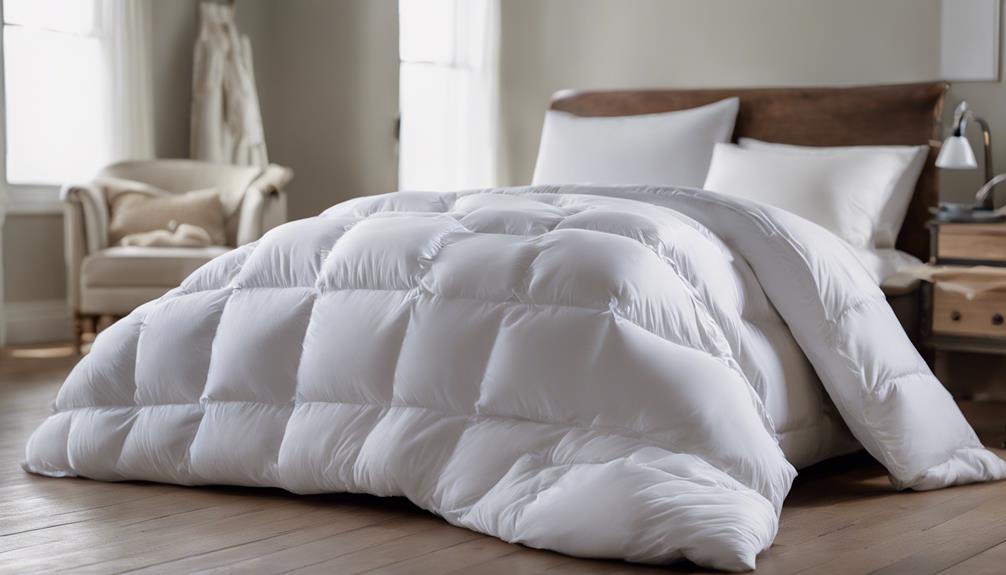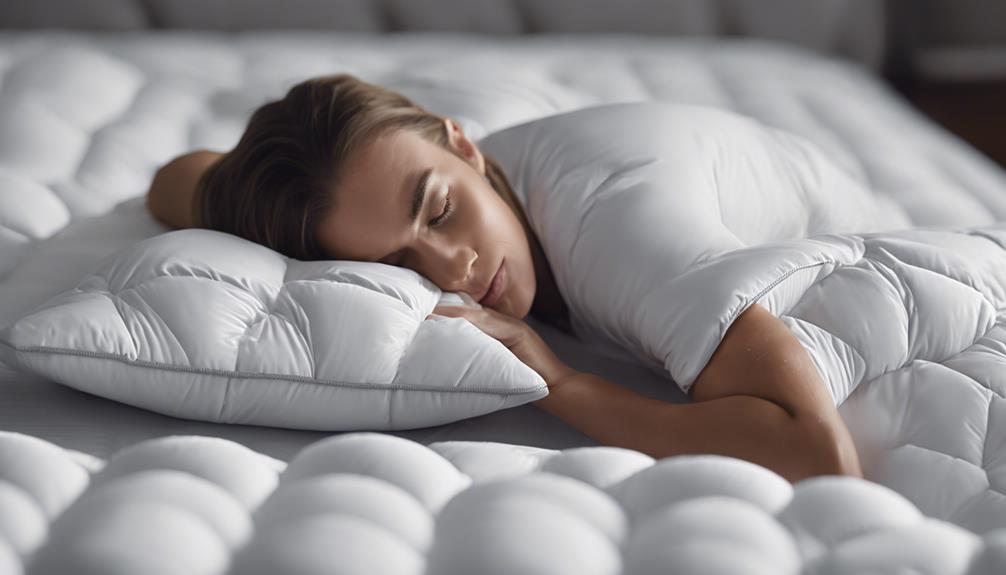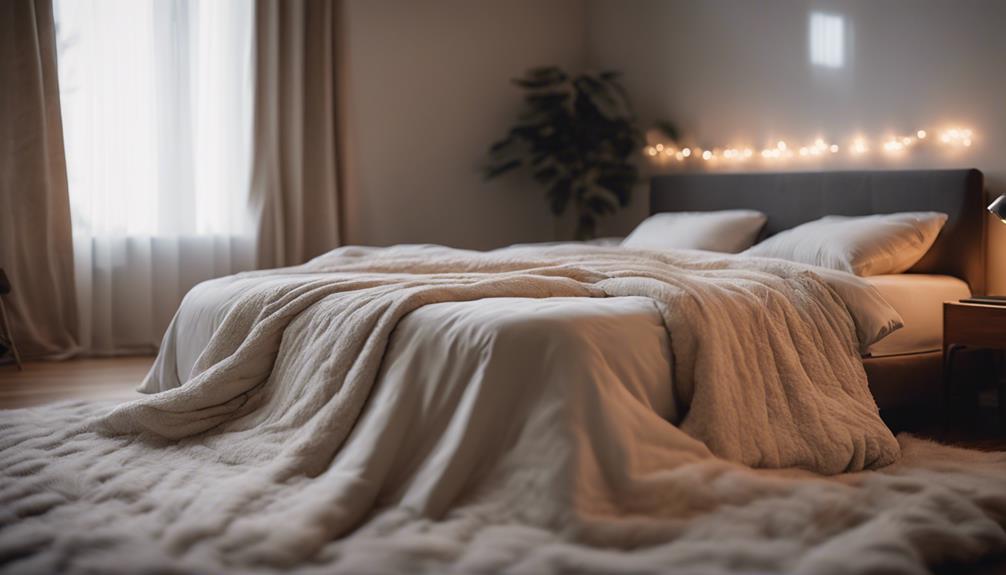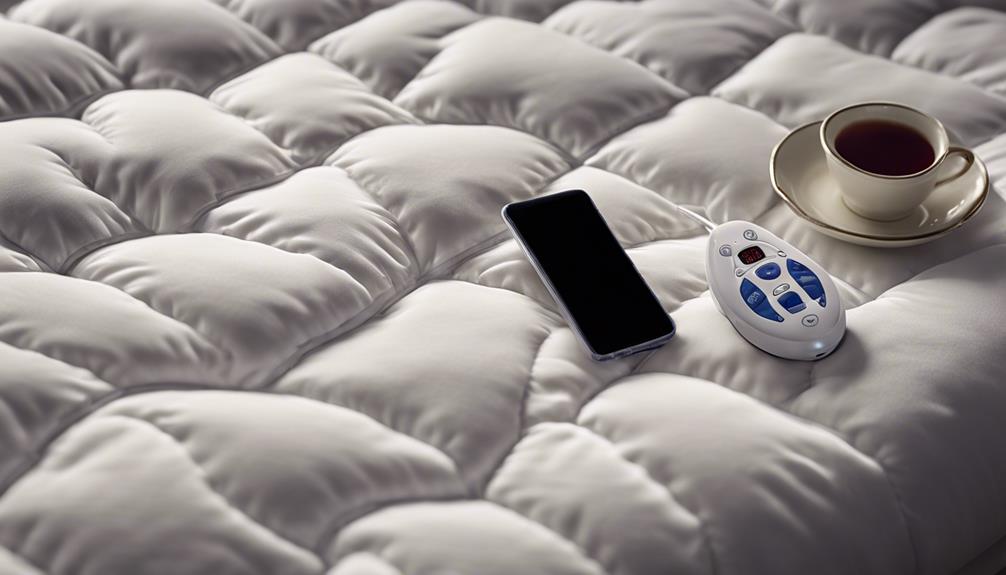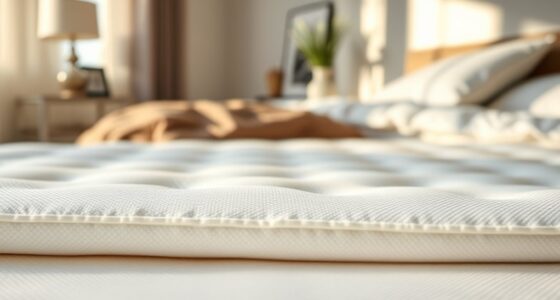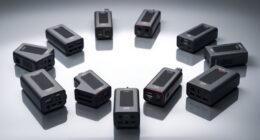Mattress pads are not completely effective in preventing bed bugs. It is advisable to choose high-quality bed bug-specific encasements to fully enclose your mattress and trap any existing bed bugs inside, thereby preventing new infestations. Encasements function as a protective barrier around your mattress, box spring, and pillows. Unlike mattress pads, encasements prevent bed bugs from entering or escaping, effectively protecting your sleeping area. By investing in a high-quality bed bug cover, you create an inhospitable environment for bed bugs to thrive. Remember to regularly check the encasements for tears or damage and contact professional pest control services if necessary to ensure a comprehensive prevention strategy.
Key Takeaways
- Mattress pads do not prevent bed bugs effectively due to open bottoms.
- Quality bed bug-specific encasements are recommended for full protection.
- Encasements act as a barrier around mattress, box spring, and pillows.
- Bed bug encasements prevent infestations by sealing off the entire mattress.
- Proper bed bug covers trap existing bed bugs and prevent new infestations.
Effectiveness of Mattress Pads Against Bed Bugs
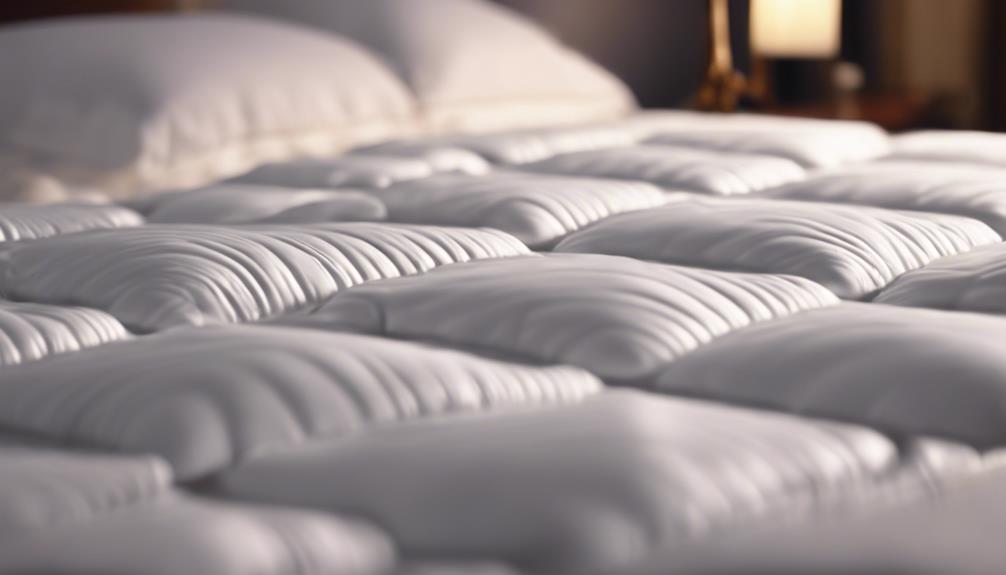
When it comes to preventing bed bugs, mattress pads alone fall short in effectively keeping these pests at bay. While mattress pads offer some protection for your bed, they aren't entirely bed bug proof. The open bottom of regular mattress pads allows bed bugs to access the mattress, making it easier for them to infest your sleeping area.
To truly prevent and control bed bug infestations, it's recommended to use quality bed bug-specific mattress encasements. These encasements act as a protective barrier around your mattress, box spring, and pillows, preventing new bed bugs from entering and trapping any existing bed bugs inside.
Limitations of Using Mattress Pads
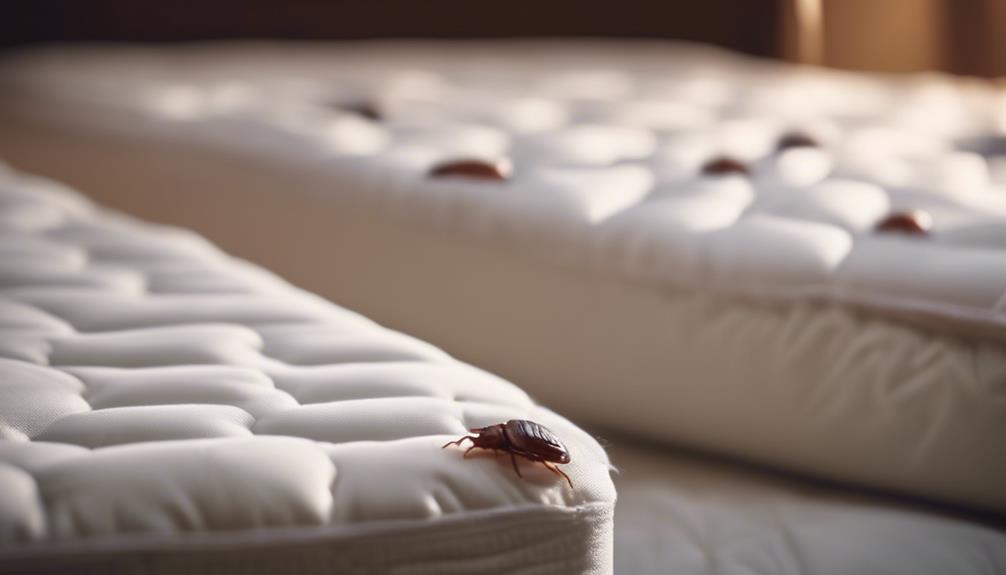
While mattress pads offer some protection for your bed, they do not fully encase the mattress like bed bug encasements do. This limitation allows bed bugs to still hide and breed in the unprotected areas of the mattress, making it easier for them to survive and potentially infest your bed. Unlike mattress pads, bed bug mattress encasements completely seal off the entire mattress, preventing bed bugs from entering or escaping. Here is a comparison between mattress pads and bed bug mattress encasements:
| Mattress Pads | Bed Bug Mattress Encasements | |
|---|---|---|
| Protection | Some protection, but not foolproof against bed bug infestations | Seal off the entire mattress, preventing bed bugs effectively |
| Areas Covered | Only cover the top of the mattress | Completely encase the mattress, providing thorough protection |
| Effectiveness | Bed bugs can easily bypass and thrive in the mattress and box spring | Kill bed bugs by trapping them inside and preventing new infestations |
| Prevention | May not effectively prevent or eliminate bed bug infestations | Highly effective in preventing and managing bed bug issues |
Using mattress pads alone may not be sufficient to protect your bed from bed bug infestations; investing in bed bug mattress encasements is a more reliable solution.
Factors Affecting Bed Bug Prevention
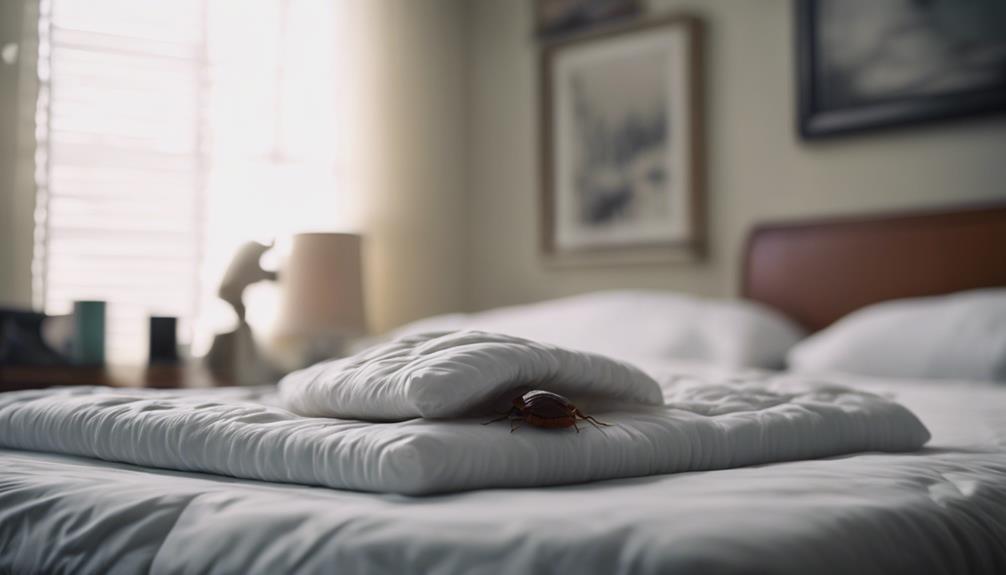
To enhance the effectiveness of bed bug prevention, understanding the various factors that influence their presence is essential. One vital factor is the use of proper bed bug covers that encase the mattress fully. These covers act as a barrier, preventing bed bugs from infesting the mattress and making it harder for them to hide and breed. Investing in a high-quality bed bug cover is important to trap bed bugs inside and prevent new bed bugs from entering your mattress.
When looking to prevent bed bugs, it's important to purchase a mattress protector that's specifically designed to guarantee full protection against these pesky pests. Regular mattress pads, while offering comfort and some protection, aren't effective in keeping bed bugs at bay. As such, it's important to invest in a bed bug cover that's designed to seal off your mattress completely. By doing so, you can reduce the risk of a bed bug infestation in your home.
Alternatives to Mattress Pads
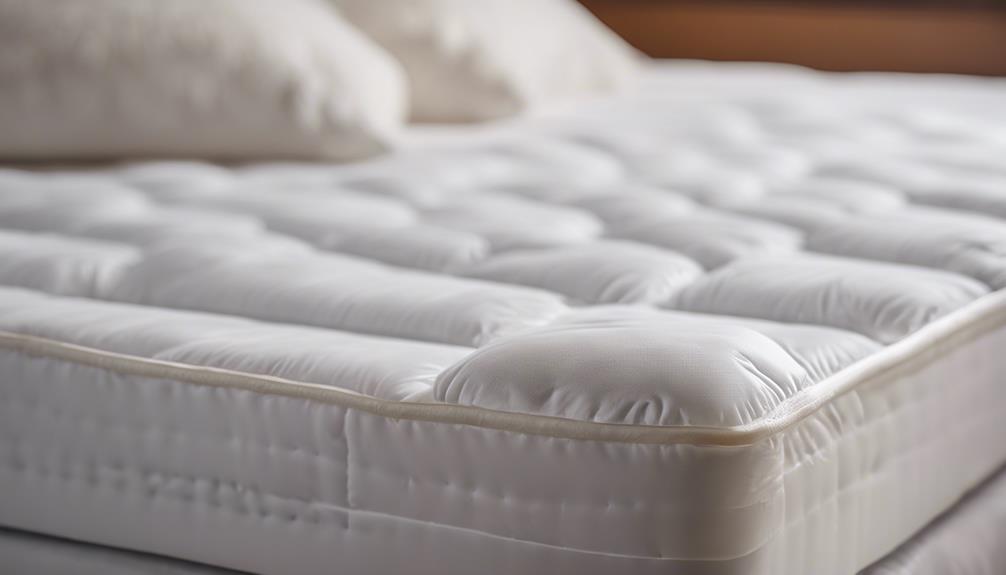
Encasements prove to be an excellent alternative to traditional mattress pads for effectively preventing bed bug infestations. Unlike mattress pads that don't fully encase the mattress, leaving room for bed bugs to access it, mattress encasements create a protective barrier. Bed bugs can easily hide and breed in the crevices of mattress pads, potentially leading to infestations that are challenging to eliminate.
Mattress encasements, specifically designed for bed bug protection, are essential in preventing and eradicating infestations. These encasements act as a shield, preventing bed bugs from accessing the mattress and finding hiding spots. By using mattress encasements, you create a hostile environment for bed bugs, making it difficult for them to thrive and multiply.
Tips for Bed Bug Prevention
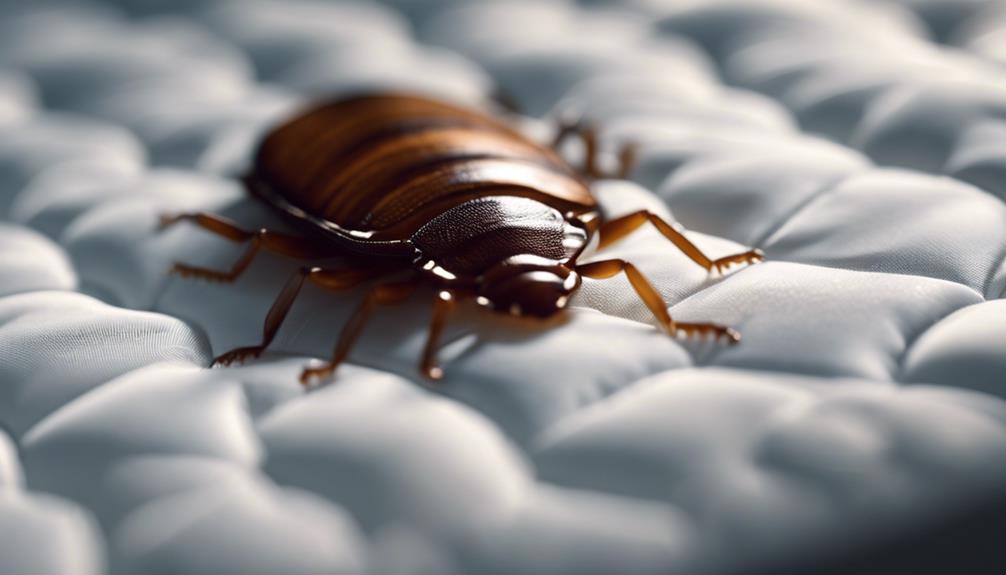
Implement a thorough bed bug prevention strategy that includes regular cleaning, vigilant inspection, and professional pest control services when necessary. To effectively prevent bed bug infestations, consider the following tips:
- Utilize Bed Bug-Proof Encasements: Invest in encasements designed specifically to prevent bed bugs from entering or escaping your mattress. These encasements should be properly sealed to trap any existing bed bugs inside and prevent them from feeding on you during the night.
- Regular Inspection: Make it a habit to regularly inspect your mattress encasements for tears, rips, or any signs of damage. Even a small opening can provide an entry point for bed bugs, compromising the effectiveness of the encasement.
- Professional Pest Control: If you suspect a bed bug infestation or want to take proactive measures, consider seeking professional pest control services. Experienced professionals can help assess the situation, provide targeted treatments, and offer guidance on preventing future infestations.
Frequently Asked Questions
Can Bed Bugs Get Through a Mattress Pad?
Bed bugs can easily penetrate a regular mattress pad due to its design. The thin material and lack of full encasement make it simple for these pests to hide and breed within the folds and crevices.
To truly protect your mattress from bed bugs, investing in a bed bug-proof encasement is essential. Unlike mattress pads, encasements fully cover the mattress, preventing bed bugs from infesting it.
Prioritize encasements for effective bed bug prevention.
What Can I Put on My Mattress to Prevent Bed Bugs?
When it comes to preventing bed bugs, a mattress encasement is a fantastic solution. These covers act as a barrier, trapping any bed bugs inside and stopping them from infesting your mattress.
What Surfaces Do Bed Bugs Avoid?
When considering what surfaces bed bugs avoid, it's crucial to note their preference for smooth, non-porous materials like glass, metal, and polished wood. These surfaces offer fewer hiding spots and make it challenging for bed bugs to find crevices for harborage.
Additionally, bed bugs tend to steer clear of regularly cleaned and clutter-free areas, as they prefer undisturbed spots for nesting. Understanding these preferences can help in creating an environment less hospitable to bed bugs.
What Type of Mattress Do Bed Bugs Hate?
We hate to break it to you, but bed bugs absolutely despise mattresses with encasements that fully cover and seal the entire mattress. These encasements act like impenetrable fortresses, preventing those pesky bugs from getting to their favorite blood supply host – us!
:Can Putting a Mattress Pad Help Prevent Bed Bugs?
Placing a mattress pad can potentially help prevent bed bugs by creating a barrier between the mattress and any pests. The extra layer can make it more difficult for bed bugs to infest and nest in the mattress, ultimately protecting it from being a home for these unwanted pests.
Conclusion
To sum up, while mattress pads can provide a layer of protection against bed bugs, they aren't foolproof.
It's important to remember that prevention is key when dealing with these pesky pests.
By regularly inspecting and cleaning your bedding, using bed bug-proof encasements, and being vigilant when traveling, you can greatly reduce the risk of infestation.
Remember, a little prevention goes a long way in keeping your sleep environment bug-free.
